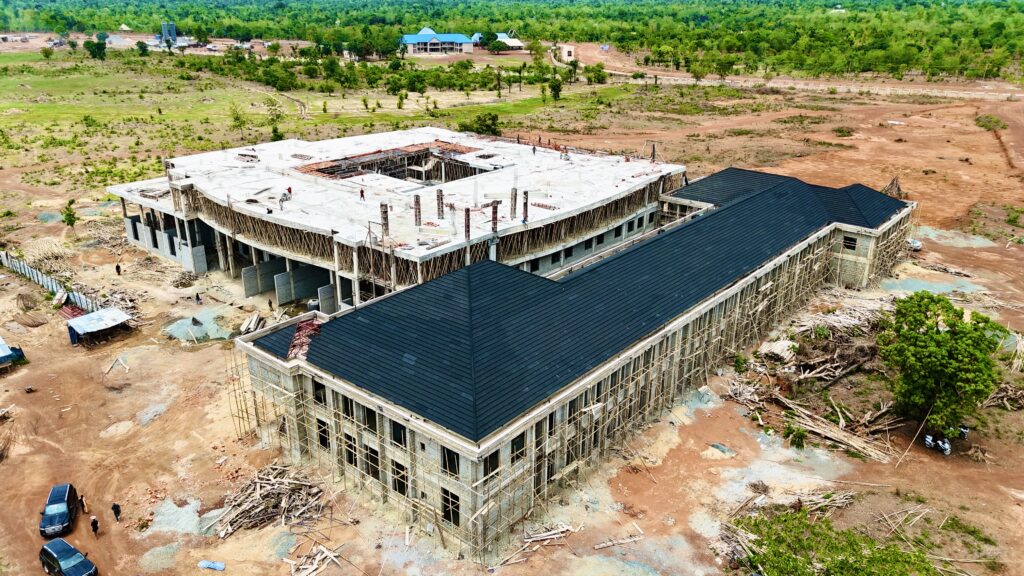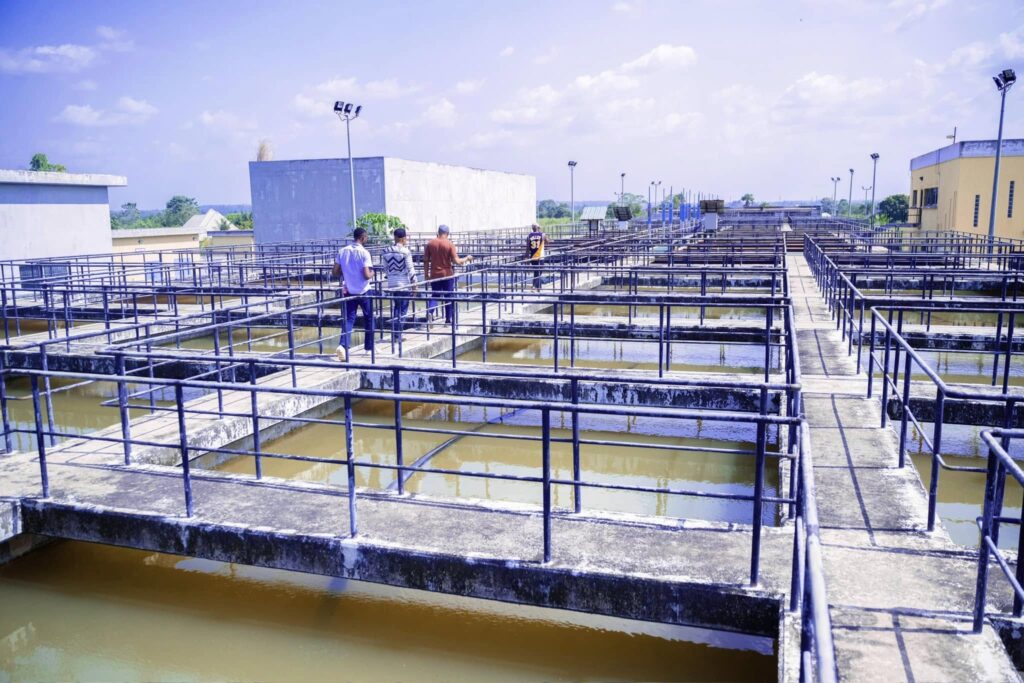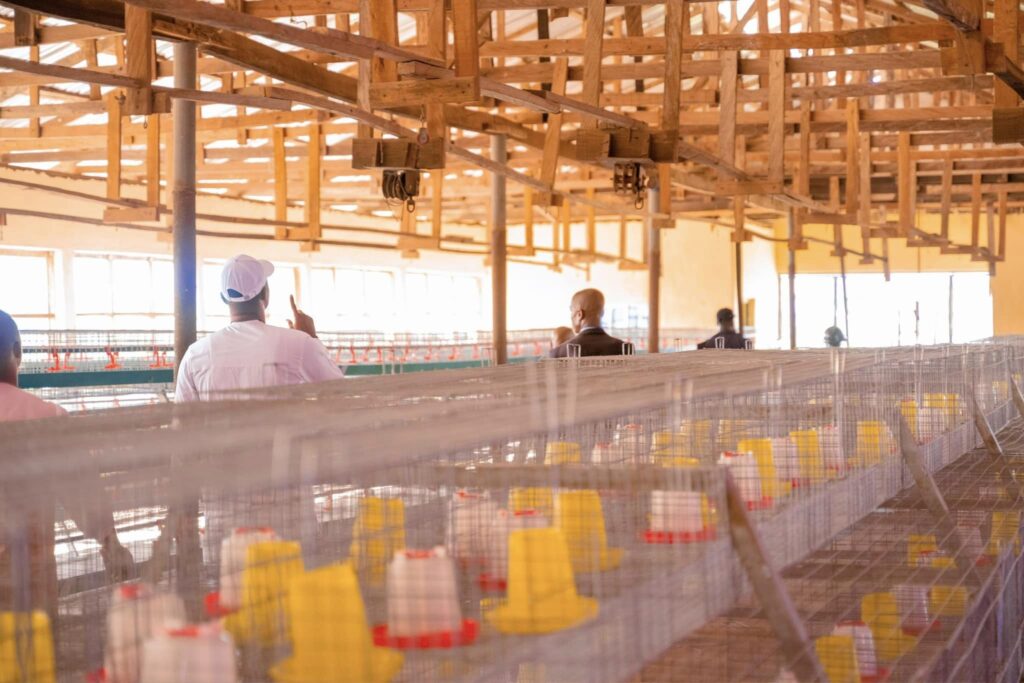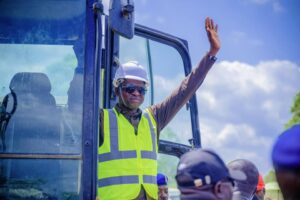
By Jeff Ukachukwu
Two years into the first term of Governor Francis Nwifuru, Ebonyi State is a symphony of transformation—where the sound of concrete mixers merges with schoolyard songs, audit stamps, and the distant echo of police sirens. It’s a state in motion, not just physically with cranes and bulldozers at work, but ideologically—with a firm conviction that governance must be cohesive, intentional, and transformative. When the governor declared shortly after his inauguration that “development in Ebonyi must taste of salt,” it was more than political rhetoric. Today, that metaphor is materialising across the hills and plains of the state, not in abstract policy documents but in steel, cement, chalk dust, and silicon chips.
What sets Ebonyi’s transformation apart is the comprehensive approach to development. Education is not just a standalone programme; it serves as the foundation for digital inclusion, public health, and economic sustainability. Roads are not merely transportation corridors but lifelines connecting ambition to opportunity. Anti-corruption measures are not just about arrests and headlines; they are about restoring public trust in governance and ensuring every naira of public money is accounted for. The administration’s vision does not treat these areas as separate silos, but as strands of a single narrative: that development must be integrated to be meaningful and must be inclusive to be lasting.
Education, for instance, is no longer being treated as an expenditure—it is an investment. In many rural communities, the arrival of one of the six pilot primary schools feels like a spaceship has landed. With their one-storey blocks, twelve classrooms each, smart boards on one wall and chalkboards on the other, they signal a new blend of tradition and innovation. Inside, pupils engage in interactive literacy games that prioritise comprehension over repetition. A teacher in one of the schools joked that she now teaches “sounds instead of letters.” Beneath the humour lies a profound shift: Ebonyi is trying to raise readers, not just reciters. And the results are already visible. Early-grade assessments show that pupils in these pilot schools perform significantly better in reading and comprehension than their peers elsewhere in the state.
The transformation extends beyond the foundational level. Across all thirteen local government areas, 39 model secondary schools are under construction or nearing completion. These are not token interventions. Each school features 22 classrooms, a science laboratory, examination halls, administrative offices, and proper sanitation facilities. For many students, stepping into these buildings is the first time they encounter an environment that affirms their dignity and potential. The impact of such exposure on self-esteem, learning confidence, and academic aspiration is profound and something we can all take pride in.
The administration has hired 1,000 new teachers, deployed across urban and rural schools to support this infrastructure. These are not just bodies in classrooms—they are trained, reoriented, and equipped to deliver a new pedagogy. The state recently organised a statewide early grade reading training programme, and the feedback has been overwhelmingly positive. Teachers who once relied on outdated rote methods now apply interactive strategies that resonate better with today’s learners. This success story gives us all reason to be optimistic about the future of education in Ebonyi.

In a move that captured national attention, Ebonyi began distributing free notebooks, textbooks, and laptops to public-school students. The visual of pupils using digital tools in communities like Ishielu or Afikpo sent a strong message: digital literacy is not a privilege of the elite but a right for every child. But this digital revolution comes with its challenges. Parents have raised valid concerns: what happens when these devices break down? Is there a repair system in place? Will there be continuous training for teachers and students? These questions underscore an essential truth—good policy begins with distribution but flourishes through continuity and support.
At the tertiary level, the state is making bold investments. Two brand-new institutions—one dedicated to Information and Communications Technology in Oferekpe and the other to Aerospace Engineering in Ezza—clearly signal that Ebonyi is not content to follow. It wants to lead in the future economy. These institutions are designed not only to produce degree holders, but to equip students with skills in coding, AI, satellite technology, and drone assembly—fields that are rapidly reshaping global industries. Existing institutions like Ebonyi State University are also receiving attention. Tuition fees have been slashed, and staff salaries have been raised by 20 per cent. The result is a more harmonious academic environment, with students and faculty feeling valued.

Perhaps the scholarship programme is the most emotionally resonant aspect of the education reform. Over 1,000 Ebonyians, including 300 abroad, have received funding for postgraduate studies. These scholarships are not just about academic excellence; they represent a pathway to social mobility. They give children from farming households the opportunity to become biomedical engineers, policy analysts, or software developers. These young scholars are scattered across the globe—from Malaysia to Canada—and many have expressed a desire to return and contribute to their homeland. But their return will depend on more than sentiment. Ebonyi must create an economy and research environment to absorb and reward their talent.

All of this would be incomplete without infrastructure. The state has embarked on an aggressive road development campaign in the past two years, completing or initiating over 700 kilometres of roads. These roads are already reducing travel time by nearly 40 per cent and increasing local trade by over 30 per cent. Farmers now reach markets faster, traders spend less on transportation, and families access schools and hospitals more easily. The dualisation of the 38-kilometre Waterworks–Obvudechi Road is particularly significant. It is not just a road project but a development artery connecting the state’s agricultural heartland to its economic centre.
Water infrastructure is also receiving overdue attention. Projects like the reactivation of the Oferekpe and Ezillo Water Schemes, and the construction of the Iboko Water Reservoir, are restoring dignity to communities that have suffered from perennial water scarcity. Clean water is no longer a luxury—it is becoming part of everyday life in urban and rural areas. This directly impacts public health, sanitation, and school attendance, particularly for girls.
And yet, in all this, the most striking chapter of the mid-term story may be Ebonyi’s aggressive war on corruption. Nine top officials—including commissioners and an LGA chairman—were suspended or arrested in just two months. The trigger? Dereliction of duty, contract sabotage, financial opacity. For example, a ₦9.8 billion housing project meant to resettle displaced communities had shown minimal progress by April 2025. The governor called it sabotage and acted swiftly, ordering the arrest of those involved. For many observers, this was a turning point. It sent a message that there would be no sacred cows.

But arrests, however dramatic, are not enough. The administration has started institutionalising reforms: the State Procurement Council is freezing suspicious certificates, a joint EFCC-ICPC-Police desk is opening case files, and an audit team is reviewing LGA expenditures quarterly. Contractors now keep their safety helmets within reach—surprise site visits are now a real threat. The question, however, remains: can this energy be codified into a permanent anti-corruption architecture? Can the fear of arrest be replaced by confidence in rules?
Other sectors are also being quietly restructured. In healthcare, four MRI machines have been procured, 195 new personnel have been hired, and 20 ambulances have been distributed. Maternity wards, neonatal units, and mobile clinics are being introduced to serve rural populations. Routine immunisation has received ₦100 million, with campaigns reaching even the remotest corners. The Ebonyi Health Insurance Agency is expanding coverage, ensuring that healthcare is not a privilege of the wealthy.
The agricultural sector is being reimagined through mechanisation, fertiliser support, and revitalisation of key assets like the Nkaliki Hatchery and the state fertiliser plant. Over 30,000 bags of fertiliser have been distributed, and thousands of farmers are receiving new equipment. These investments are designed to increase productivity and reposition agriculture as a viable industry.

Of course, the journey has not been without its obstacles. Accelerated construction has led to quality issues in some schools and roads. internet connectivity remains uneven, limiting the effectiveness of digital education. Sufficient teacher salaries, scholarships, and infrastructure will require a more diversified and resilient revenue base.
But the trajectory is clear. Ebonyi is no longer content with being a footnote in national development conversations. It is positioning itself as a case study in how integrated, inclusive governance can reshape a state’s fortunes. Education, infrastructure, and anti-corruption are not just political talking points—they are the scaffolding of a new social contract. And as the state enters the second half of the Nwifuru administration, it faces a clear test: Can it deepen these reforms, institutionalise them, and make them irreversible?
If the classrooms remain functional, the roads endure, the laptops stay powered, and the scholars return home to innovation hubs instead of Instagram nostalgia, then Ebonyi will have done more than build—it will have transformed. It will have taken salt and seasoned a generation. And in a country weary of promise fatigue, that alone would be a revolution.
Mid-term, Ebonyi stands at an inflexion point. The scaffolding of transformation—physical, pedagogical, ethical—is visibly rising. What endures will depend less on ribbon-cuttings than on budgets for spare parts, on the quiet grind of audits, and on a social contract that persuades tomorrow’s Robotics engineer to land his start-up in Ezza rather than Lagos. If salt is to season, it must dissolve into every crevice; if reforms are to transform, they must outlive the applause. Ebonyi has mixed the brine. The second half will reveal whether the flavour holds.
Dr Jeff Ukachukwu is a public affairs analyst and writes from Lagos. (jeffukagmail.com)




